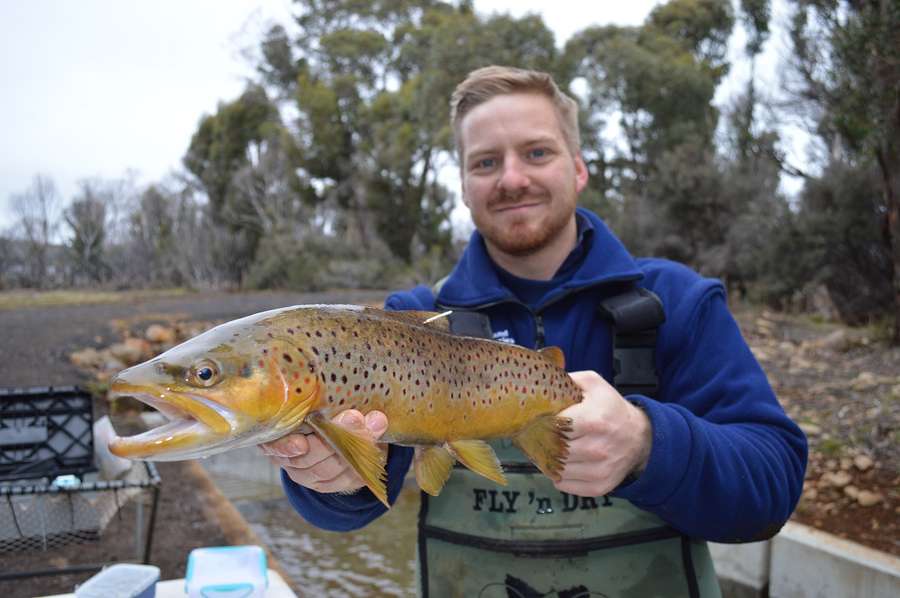Tagging trout to improve your fishing

We tag for a number of reasons:
- to estimate the number of fish in a water (usually a lake)
- to work out how much a fish has grown
- or to track fish movements.
Anglers can help in all these areas. Here is a quick guide on what you can do if you catch a tagged fish.
When you catch a trout, the tag is usually obvious - fish do not naturally have a bit of coloured plastic sticking out of them! The tag will be near the dorsal fin - the fin on the top side of the fish. The plastic cap on the tag can be any colour except black and will have writing on it. We have “IFS” and a four-digit number on them: “IFS0123” as an example. See the picture above.
If you catch a tagged fish, first note the tag number, if you are going to release the fish back into the water try to measure it first. Measure trout from the nose to the fork in the tail. We use millimetres (mm) to record fish length. You may wish to weigh the fish, if you do record the weight in grams (g) uncleaned.
Please report to us via infish@ifs.tas.gov.au or by phoning 1300 INFISH (463 474) the:
- Tag number(s)
- Fish length in millimetres (mm)
- The total number of fish you caught including the tagged one(s)
- Weight in grams (g)
- How, when and where you caught the fish
Currently (August 2019) there are tagged fish in the following lakes:
- Bradys Lake, Lake Binney and Tungatinah Lagoon – tagged winter 2019
- Shannon Lagoon – tagged winter 2017
- Arthurs Lake – tagged winter 2016
This season we would like you to keep an eye out at Bradys Lake, Lake Binney and Tungatinah Lagoon where we released 3 500 tagged fish to try and get a handle on just how many fish are swimming round these three waters. They might even make it up into Bronte and Dee lagoons. Please let us know.
While the Bradys system is a priority, please report any tagged trout at Arthurs Lake and Shannon Lagoon these fish will provide important information on trout growth at these waters.
Tagged fish serve a purpose and any information you have about them will help us manage our fisheries better. The result can better fishing for you.